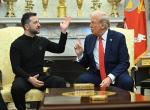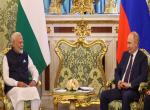Amid controversial observations about the Taliban’s potential recognition[1], the world is yet to arrive at an understanding, let alone a consensus, on what to make of the ultra-conservative regime and how to best deal with it. The fact that this group stuck around and, eventually, returned to power two decades after it was bombed out of Afghanistan has removed all doubts about its tenacity; the Taliban is here to stay, begging the question of what follows next.
Afghanistan’s Pandora Box
The Taliban's takeover of Afghanistan in Aug 2021 generated a lot of concerns, including those about the gross American miscalculations in its longest war abroad.[2] Besides providing timeless lessons on what not to do when reconstructing a country[3], the consequences of an ill-planned international misadventure have created a conundrum for the world order in the present. The facetious victory of the Taliban has reinforced disturbing trends, including those that potentially abet violent take-overs by dogmatic elements.[4] Although the Taliban maintains that it harbours no extra-territorial ambitions, it does not stop purchasing its purported strategic victory among other extremist groups to persist in their idiosyncratic fights in the hope of an eventual win.[5] But while the cascading effects of the Taliban's return to power raise fundamental questions about our collective failure to tackle religious extremism at large, there is a far more urgent and pressing issue at hand and which is to prevent the brewing humanitarian crisis in Afghanistan from becoming a global catastrophe.
The Taliban's de-facto rule over Afghanistan has sparked the to-deal-or-to-not-deal debate, reminiscent of the dilemma the world faced in 2001/2002 when it set out to bring the harbourers of Al-Qaeda to justice.[6] But while history repeats, the decisions taken back then cannot be. Unlike 2002, when the world powers did have a choice to ignore the Taliban, and they exercised it, today, the Taliban sticks out like a sore thumb. a href="#_edn7" name="_ednref7">[7] It is the reality of Afghanistan, which, for the most significant part, has been the making of the same world powers which previously refused to engage with the Taliban despite solid indications of the latter’s desire to surrender and negotiate back in 2001/02.[8]
While diplomatic recognition of the Taliban remains off the table, the tried-and-failed isolation strategy is unlikely to bode well yet again. [9], [10] Calibrated engagement with the Taliban is equally afflicted with apprehensions about the indirect benefits they may deliver to the group, stymying international efforts to get the Taliban to change. The law of unintended consequences, evidently in motion here, continues to prevent the stakeholders from engaging meaningfully with Afghans lest it bolsters the Taliban. [10] Devoid of a structured system of economic governance, which crumbled under the impact of the Taliban’s misgovernance and financial sanctions[12], [13] it is becoming increasingly difficult to ascertain the fiscal conduits to deliver civic assistance and its ultimate beneficiaries.
The Taliban continues to show no intention, let alone a plan, to create an inclusive government despite repeated appeals from different state and non-state stakeholders as a pre-condition for deeper engagement.[14] It appears the Taliban sticks to its tried and tested strategy of biding time, knowing there is no bypassing them. As a result, the ongoing efforts at inducing change through promised engagement incentives may not encourage the Taliban to make good on many of its previously agreed assurances, including the cessation of direct and indirect support to transnational terrorist entities such as Al-Qaeda. The killing of Al-Qaeda’s head in Kabul[15] does not inspire confidence in the Taliban to create a conducive environment to facilitate meaningful international dialogue.
It is worth mentioning that the Taliban’s internal politics also inflects its international engagements besides determining its policies vis-a-vis the local population.[16] Accordingly, the persisting dominance of a militaristic, ultra-conservative hardliner approach within the current dispensation is unlikely to generate interest in ceding space to international demands like removing bans on women’s higher education and employment opportunities.[17] It is not hard to see the prevailing stasis in the world’s relations with the Taliban continuing as is for the foreseeable future.
Running on a Treadmill
Come August 2023, the world will witness the Taliban celebrating its second year of returning to power in Afghanistan, although devoid of the international legitimacy it has been seeking. But while a wholesale diplomatic acceptance of the Taliban at the UN remains a distant dream, it is not entirely poorer without it. At one level, it forces itself into the international diplomatic space by appointing its envoys[18], as it recently did in India. At another level, it is capitalising on the gradual adaptation of the world to its time-tested sticking power. Hence, the deals the Taliban recently struck with Pakistan and China come as little surprise and more as an inevitability[19], a matter of ‘when’ than ‘if’. These engagements remain piecemeal and may not address Afghanistan’s structural issues without a functioning financial system and a legitimate government. Afghanistan's challenges today are qualitatively different from those it faced ten years ago. Yet somehow, like in the past, dealing with the dynamics in Afghanistan of today still feels like running on a treadmill - you keep running but essentially reach nowhere.
Endnotes
[1]Singh, A. (2023) US rejects talks of recognising Taliban after UN bats for it, WION. Available at: https://www.wionews.com/south-asia/us-rejects-talks-of-recognising-taliban-after-un-bats-for-it-585163.
[2]Saikal, A. (2021) The Afghan War: Why the US Lost, RSIS. Available at: https://www.rsis.edu.sg/wp-content/uploads/2021/09/CO21140.pdf.
[3]Sen, A.K. (2022) Missteps and missed opportunities for Peace in Afghanistan, United States Institute of Peace. Available at: https://www.usip.org/publications/2022/10/missteps-and-missed-opportunities-peace-afghanistan.
[4]Arshad, A. (2021) Taliban victory in Afghanistan may spur militants in S-E asia, The Straits Times. Available at: https://www.straitstimes.com/world/taliban-victory-in-afghanistan-may-spur-militants-in-s-e-asia.
[5]Hassan, A.M. (2021) Implications of the Taliban victory for Bangladesh, The Diplomat. Available at: https://thediplomat.com/2021/08/implications-of-the-taliban-victory-for-bangladesh/.
[6]Gopal, A. (2010) Missed opportunities in Kandahar, Foreign Policy. Available at: https://foreignpolicy.com/2010/11/10/missed-opportunities-in-kandahar/.
[7]Sen, A.K. (2022) Missteps and missed opportunities for Peace in Afghanistan, United States Institute of Peace. Refer to note iii.
[8] Ibid.
[9]RFERL (2021) UN indefinitely delays decision on Taliban, Burma junta recognition, Radio Free Europe/Radio Liberty. Available at: https://www.rferl.org/a/taliban-un-recogniztion-burma/31597276.html.
[10]Rose, S. and Pisa, M. (2022) Aid alone will not solve the humanitarian crisis in Afghanistan: Exploring ‘all options available’, Center For Global Development | Ideas to Action. Available at: https://www.cgdev.org/blog/aid-alone-will-not-solve-humanitarian-crisis-afghanistan-exploring-all-options-available.
[11]Keatinge, T. and Saiz, G. (2022) Afghanistan under the Taliban: The unintended consequences of sanctions, Royal United Services Institute. Available at: https://www.rusi.org/explore-our-research/publications/commentary/afghanistan-under-taliban-unintended-consequences-sanctions.
[12]Miakhel, S. (2021) For the Taliban, governing will be the hard part, USIP. Available at: https://www.usip.org/sites/default/files/Afghan-Issues-Paper_For-Taliban-Governing-Will-Be-Hard-Part.pdf.
[13]Byrd, W. (2021) Afghanistan’s economic and humanitarian crises turn dire, United States Institute of Peace. Available at: https://www.usip.org/publications/2021/10/afghanistans-economic-and-humanitarian-crises-turn-dire.
[14]Miakhel, S. (2021) For the Taliban, governing will be the hard part, USIP. Available at: https://www.usip.org/sites/default/files/Afghan-Issues-Paper_For-Taliban-Governing-Will-Be-Hard-Part.pdf.
[15]Crisis Group (2022) The U.S. and the Taliban after the killing of al-Qaeda leader Ayman al-Zawahiri, Crisis Group. Available at: https://www.crisisgroup.org/asia/south-asia/afghanistan-united-states/us-and-taliban-after-killing-al-qaeda-leader-ayman-al.
[16]Miakhel, S. (2021) For the Taliban, governing will be the hard part, USIP. Available at: https://www.usip.org/sites/default/files/Afghan-Issues-Paper_For-Taliban-Governing-Will-Be-Hard-Part.pdf.
[17]Siddique, A. (2023) Taliban leader’s dominance results in increased oppression, isolation, Radio Free Europe/Radio Liberty. Available at: https://www.rferl.org/a/afghanistan-taliban-leader-akhundzada-oppression-isolation/32234403.html.
[18]Haidar, S. (2023) Mea faces tough choice as Taliban pick a new ambassador for Delhi, The Hindu. Available at: https://www.thehindu.com/news/national/mea-faces-tough-choice-as-taliban-picks-a-new-ambassador-for-delhi/article66852411.ece.
[19]Najafizada , E. and Dilawar, I. (2023) At Islamabad Meeting, a key agreement between China, Taliban, NDTV.com. Available at: https://www.ndtv.com/world-news/taliban-agrees-to-extend-chinas-belt-and-road-in-afghan-after-pak-meet-4012893.
(The paper is the author’s individual scholastic articulation. The author certifies that the article/paper is original in content, unpublished and it has not been submitted for publication/web upload elsewhere, and that the facts and figures quoted are duly referenced, as needed, and are believed to be correct). (The paper does not necessarily represent the organisational stance... More >>
Image Source: https://commons.wikimedia.org/wiki/File:Former_Taliban_fighters_return_arms.jpg











Post new comment